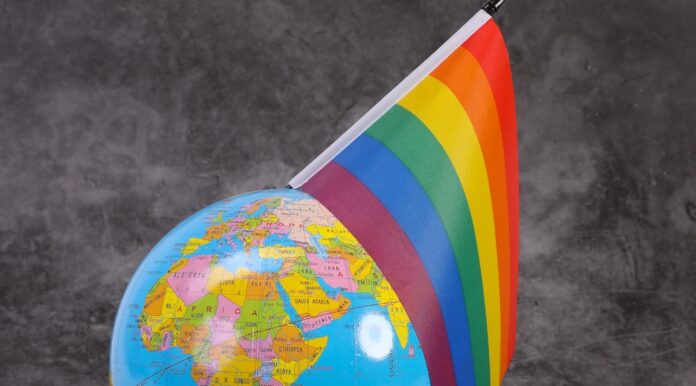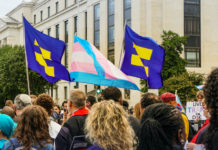Despite the backlash currently threatening LGBTQ+ people in the United States, a new report from the Williams Institute at UCLA School of Law indicates significant progress in the number of countries with LGBTI-inclusive laws and policies over time.
In 1990, 57% of countries around the world had few or no legal protections based on sexual orientation (SO), and 90% of countries had few or no protections based on gender identity, gender expression, or sex characteristics (GIESC). In 2023, the proportion of countries without legal protections based on [sexual orientation] had dropped to 30%, and those without GIESC protections had dropped to 51%.
This study used data from the LGBTI Global Acceptance Index, which evaluates a country’s attitudes toward LGBTI people and their rights on a scale of 1 (very negative) to 10 (very positive), as well as the new and expanded Legal Environment Indices that assess a country’s SOGIESC [sexual orientation, gender identity, gender expression or sex characteristics] laws. By analyzing both data sets, researchers aimed to examine the different paths countries take to become more or less inclusive of LGBTI people.
Results show that there is no single linear progression toward full SOGIESC protections. However, protections for sexual orientation generally advance by first decriminalizing homosexuality, followed by employment protections or broader nondiscrimination protections. Full protections based on gender identity, expression, and sex characteristics are most likely to occur through allowing gender marker changes and establishing a formal legal gender recognition process or implementing health care protections.
While some countries have seen efforts to further enshrine anti-LGBTI measures into law or to roll back important gains, the study found that once a country adopted a particular SOGIESC protection, it was highly unlikely that the protection would be repealed.
“Public policy tends to develop incrementally, and laws that address LGBTI rights can take a variety of forms and focus on a range of issues,” said lead author Andrew R. Flores, Affiliated Scholar at the Williams Institute and Professor at American University. “A clear understanding of the pathways that countries take to become more protective of LGBTI people is important in designing strategies that support inclusive development.”
Results also show that social acceptance is strongly linked to legal inclusion and may reflect an important precondition for changing law and policy. Furthermore, countries with larger populations and more globalization tend to show a stronger relationship between LGBTI acceptance and legal inclusion.
“Development stakeholders working to advance LGBTI-inclusive laws and policies should pursue dual strategies of cultivating public support for LGBTI people and their rights in addition to pursuing legal change,” said study author Ari Shaw, Senior Fellow and Director of International Programs at the Williams Institute. “More research is needed to examine the complex interconnections between institutions, acceptance, and policy development.”
— from a Williams Institute press release
More: williamsinstitute.law.ucla.edu
Not a subscriber? Sign up today for a free subscription to Boston Spirit magazine, New England’s premier LGBT magazine. We will send you a copy of Boston Spirit 6 times per year and we never sell/rent our subscriber information. Click HERE to sign up!









